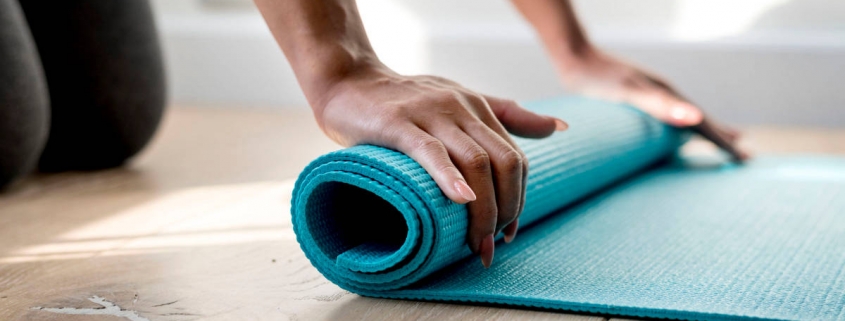5 Relaxing Yoga Poses for Better Sleep – 15 Minute Workout
Insomnia is a regular fixture in the life of the average adult. This is as a result of the stress of everyday life, as well as various responsibilities. It is therefore very common to hear many adults complaining about reduced productivity as a result of inadequate sleep.
Common Causes Of Insomnia
Insomnia is a sleep disorder that makes it hard to fall asleep, stay asleep for long or even make you wake up early without being able to go back to sleep. Below are some of the common causes of insomnia.
Stress: In most people, stress is the number cause of insomnia. Worries about important parts of life such as school, health, work, finances as well as family matters can be one thinking at night. Traumatic life events like divorces, death, surgical procedures and heartbreaks can lead to a lack of sleep.
Poor Eating Habits: Eating too late in the evening can lead to insomnia. Eating late disrupts the process of digestion and metabolism. This results in physical discomfort when you lay to sleep. Acid backflow and heartburns are among the conditions that arise from poor eating habits.
Irregular Schedules: Everybody has a circadian rhythm which regulates the body functions. It is in charge of the sleep-wake cycle serving as the internal clock of the body. Any change or disruption to the circadian rhythm leads to insomnia. Therefore activities like working late shifts, studying up late, frequent traveling over different time zones can result in lack of sleep.
Poor Sleep Habits: Regularly engaging in activities that keep you fully active at bedtime contribute to insomnia. Eating or watching TV at your bedtime; focusing on the screens of your smartphones, video games and computers; as well as being in an uncomfortable sleep environment can all lead result in lack of adequate sleep.
Medical Conditions: Insomnia can also be as a result of certain medical conditions. Depression, post-traumatic stress disorder, asthma, certain medications, and sleep-related disorders are a few of them.
Five Relaxing Yoga Poses For Better Sleep
If you are suffering from lack of sleep, yoga is one of the most effective ways to relax your mind and sleep better. Discussed below are the five best yoga poses, to battle insomnia in 15 minutes. Each pose targets different muscles and leaves you feeling thoroughly eased, resulting in a good night sleep. These poses are easy to replicate and do not require special apparatuses.
- Salabhasana: Also known as the grasshopper pose; Salabhasana aids good sleep as it reduces body stress. The pose targets the muscles in the stomach and back; thereby relieving indigestion and back pain. In addition, it soothes the neck and chest while also being quite effective for leg pain.
You start by getting in the plank position. Inhale deeply and raise your shoulders up, proceeding to clasp your hands behind your back. Exhale and then root the topmost part of your feet into the ground. Inhale again and lift your chest and arms slowly while maintaining the plank position. Breathe out slowly and stay in this position for a short time. Round up by pushing your body to form the shape of a downward-facing dog. - Supta Baddha Konasana: Referred to as reclining bound angle pose, it is very effective in battling insomnia. This pose works on stretching the thighs exercising the lower body, thereby improving body circulation and relieving pressure. By improving circulation, the lose enhances the nervous system.
Place a pillow at the base of your back to start with. Then bend your legs, ensuring to place your feet together at the sole. Maintain that position in a relaxed state; without pushing. Lay back on the pillow and open up your body, relaxing the muscles in the process. Stay like this for about 5 minutes, while taking slow breaths. - Jathara Parivartanasana: Simply referred to as the belly twist; Jathara Parivartanasana translates to ‘stomach rolling around’. The pose helps with digestion and relaxes the lower back, helping to combat insomnia.
You start by laying on your back, then move your arms to your side with your palms facing down in a T position. Bend your knees into your chest, and hold that position. Exhale slowly then drop your knees to the left side of your body. Then you slide your knees to your left arm as far as it can go. Stay in this position for 5 minutes then do the same thing on the right side of your body. It twists your lower back and spine thereby relieving the muscles. - Upavistha Konasana: Upavistha Konasana is a yoga pose that removes tension from your groin, legs and lower back. This pose helps insomnia as it relaxes the mind. It also eases sciatica and helps with arthritis.
Take a position on the floor, sitting upright with a straight back. Spread your legs in front of you to form a V, with your hands placed on your buttocks for balance. Then inhale deeply, and push backward in order to stretch your spine. Exhale slowly and then bend forward from your hips. - Supported Savasana: Also called the corpse pose, supported savasana helps you relax your body before sleep. Start by laying on your back, letting your legs and arms fall to the sides in a relaxed position. Close your eyes and breathe in deeply and slowly for about 5 minutes. Change your position by drawing your knees into your chest; stay like that till you find sleep.
Supplements You Can Use
In addition to these yoga poses, there are a few supplements that aid healthy sleep. One of the most effective is shilajit. Shilajit is a sticky substance usually found in the Himalayas. It contains up to 85 minerals including fulvic acid, triterpenes, humic acid and many more. One of the benefits of shilajit is mood stabilizer. As a mood stabilizer it reduces anxiety allowing you sleep without stress. Another benefit of shilajit is that it promotes sleep by regulating the body rhythm, ensuring you sleep soundly.
In conclusion, it is important to leave the stress of the day off your mind before going to bed. Also practice healthy food and sleeping habits, as that will keep your circadian rhythm and other body functions in order.

